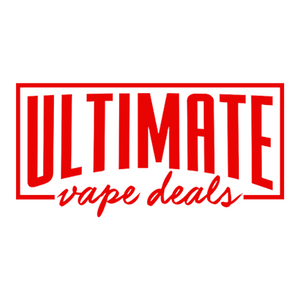
Netherlands to Ban Flavored E-liquids
The Netherlands is looking to ban all flavored e-liquid products on the market. The ban is scheduled to take effect from the first half of 2021. Dutch government officials said the proposal to ban flavored e-liquids aims to make vaping less attractive to young people.
Dutch health officials say the number of people dying from the effects of smoking is still alarming. Vaping is commonly viewed as healthier than smoking and has become increasingly popular among young non-smokers. Officials argue that these young people often use vaping as a stepping stone to consuming traditional tobacco products. A 2017 government report said more than a quarter of young Dutch people the ages of 12-16 have vaped at one time.
According to the government, the availability of different e-juice flavors attracts younger people to vaping. Some examples of the e-liquid flavor range include strawberries, ice cream, mojito, chocolate, mango, pie, and many others.
“It is unacceptable that 20,000 people die every year in our country from the effects of smoking and that every day around 75 kids start smoking,” deputy health minister Paul Blokhuis said.
“The new insights confirm that the smoke-free generation that is one its way must also be an e-cigarette-free generation.” “There is no room for cigarettes with all kinds of seductive, exotic flavor in this,” Blokhuis added.
Dutch health officials will refine the country’s tobacco laws to include the proposed flavored e-liquid ban. Officials also announced that only tobacco flavored e-liquid products would be allowed on the market. And the reason for allowing these vaping tobacco-flavored products is to help regular smokers quit the habit.
The Netherlands is not the only country in Europe, thinking along these lines. Estonia, Finland, Hungary, and Denmark have passed laws banning flavored vaping products. The Danish flavored vaping ban will take effect around April 2021. Danish laws now prohibit the production of flavored e-liquids. However, it allows for the current stock of flavored vaping products to remain on the market for a year when they should be sold off.
German is another European country looking to approve similar restrictions on flavored vaping products. This year, the German ban is scheduled to take place after the European Union (EU) will update the current Tobacco Products Directive (TPD). It is expected that control groups will pressure EU legislators to impose a strict vaping flavor ban. Countries in Asia, including China, are also establishing laws restricting vaping and e-cig products.
However, not everyone supports the flavored vaping ban in the Netherlands. A public consultation against the ban was launched after the proposal was initially announced. Dutch vapers, vaping businesses, and trade organizations have been urged to make their views known. About 600 people have participated in the public consultation, which will run till Jan 19th.
Many who oppose the ban say vaping assists people looking to quit smoking cigarettes. Vaping is generally considered to be a healthier option than smoking cigarettes. However, Blokhuis disagrees and has based his proposal on a new government-sponsored study by the Trimbos Institute.
According to the new study, the different flavors of e-liquids attract young people. The research also questioned the safety of vaping. The Trimbos Institute study reveals that vaping may not be as healthy as popularly assumed. And more young people are going from vaping to smoking cigarettes. And the combination of both habits is more dangerous than the already known adverse consequences of smoking.
Financial experts forecast that the vaping industry will be worth billions in years. However, despite the vaping industry's growth, there is growing anti-vaping sentiments and government push backs. Last year, Juul, one of the biggest vaping brands in the United States, was banned from selling its products in China. Juul was looking to expand to China, but the ban came just after four days of setting up. The US company has banned dropped expansion plans targeting India after the government recently banned all e-cig products. Cambodia, Thailand, Singapore has all placed laws banning electronic cigarettes. And in the Philippines, President Rodrigo Duterte has decreed that officials will arrest anyone vaping outside designated smoking zones.
“It has been extraordinarily quick backlash,” Kathleen Hoke, director of the Network for Public Health Law at the University of Maryland, said. “Countries that you wouldn’t necessarily describe as progressive public health nations are attacking this new product so that it doesn’t become embedded in their culture as cigarettes have.”
Many fear that the push back may be spreading to the US, where there are already widespread concerns about young school-going children vaping. Last year, Juul stopped selling all its dessert-fruit flavored nicotine pods in the US before a national ban.
A recent nationwide outbreak of dangerous vaping-related lung disease has increased the public against vaping. The skepticism is also shared by public health officials across different states looking to protect young people of school-going ages from vaping dangers.


Leave a comment